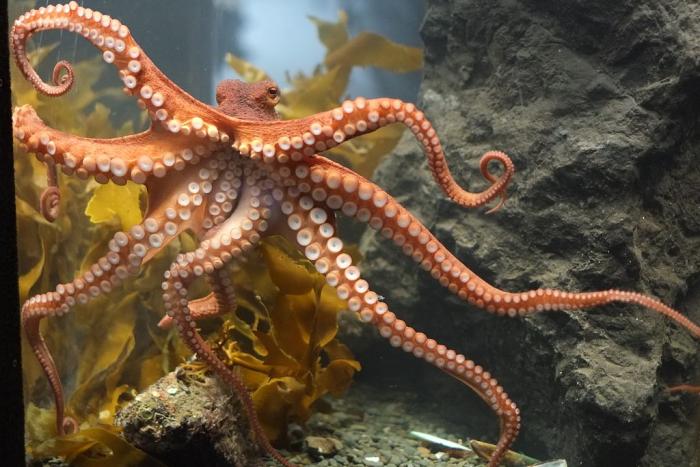What were we obsessed with, invested in and plagued by in 2017? Hazlitt’s writers reflect on the issues, big and small.
Last year, I had dinner with an old friend and told her about some book I had recently read and loved. She responded that she probably wouldn’t ever read it, because she wasn’t reading books by white men anymore. Although I believed in theory that my politics conformed with hers, I rushed to defend the book I was recommending: no, no, but this one is different—this one is so deeply human, so vulnerable, so beautifully constructed. I agreed with what she was doing, but how could she deny herself the experience of this particular book that I loved? I agreed with what she was doing, except for when it touched the things I liked, which surely I liked because they were innocent of what her stand critiqued.
I should have thought more about what her insistence and my reluctance meant, but I didn’t, then. I thought I had squared away my reactions to things like this, made my beliefs clean and correct, but it wasn’t until this year when I really began to look at cultural choices like this and the weight they carry, to think about ethical consumption other than as a phrase in a meme. These issues no longer arose on occasion in uncomfortable conversations; they were here, every day, again and again, showing up in the morning exhausted but ready to go, repeating themselves, punching the wall until it dented. It wasn’t a good year for avoidance.
Day by day, as this year howls to a close, the list of names of The Bad Men grows longer, from ones you loved to ones you never thought about. I wasn’t stunned when I read any of these stories. I knew what I was reading was, objectively, awful, but I was so numb to the idea that this is simply what reality is, that this is how the world works and what we put up with, that my main reaction was to be confused as to why we were all suddenly talking about it. I didn’t have much of a reaction at all, and I felt guilty about my lack of reaction, about how well this system had trained me to be accustomed to its bargains and to the collaboration it demands.
*
It’s been a difficult year if your view of humanity hinges, as mine does, on the idea that people are more than the worst thing they’ve done. Pain—like trauma, like violence, like loss—muddies the water. It blurs our vision, sets the car reeling off the road through lanes of traffic, clipping everyone it touches. This is the impossible thing about trauma and trying to measure it up to justice: no one is clean. We accumulate what people have done to us and carry it into the lives of others; we inflict and are inflicted upon. When, in the past, bad things happened to me, I learned to protect myself from them happening again. I grew defense mechanisms; I taught myself how to please men. This year has been about breaking down and holding in my hands how much of my existence, my very identity, has been targeted toward gaining the correct reaction from men in power, constructed and strung together toward the preferences of the kind of men who end up on secret spreadsheets—or, perhaps worse, who don’t, who keep their wrongs just beyond the existing lines and go on tilting the world toward a view where they are central and everyone is at the edges, where they are flesh-and-blood protagonists and everyone else is set dressing. Where they are bread, and everyone else is either trash or candy. These individuals—the men on spreadsheets, and the men with enough power and forethought to escape those lists—are, as we have also seen so often this year, the same men who give shape to our very means of understanding the world.
For many years and until recently, I was that girl who was only friends with men. This wasn’t really true, of course—as it isn’t really true for almost any woman who makes this claim or the other, similar claim that “women just don’t like me”—but it was how I wanted to see myself. I was close with men, close enough with them that they complained to me about other women, which at the time felt like the highest honor, reaching up and ringing the bell. I have sat in on numerous conversations detailing the ways women are bad at sex when they think they’re good at sex, the brutal calculus of who is and isn’t attractive, and the litany of unfair ways in which women get upset about nothing, or expect things that were not explicitly promised to them. I have laughed at all of the jokes in these conversations, agreed with all of the assertions. Bitches, man. Sometimes I felt sick and guilty, but I assumed the whole world ran on bargains like this one. In those years, I was the two most important things—hot and chill—and if my feelings were hurt most of the time and I felt disposable, that was both unavoidable and beside the point. Being a woman in male spaces—which is most spaces—is a gradual, embedded process of disloyalty, in which it becomes harder and harder to shrug in and out of skins incompatible with one another. If I was uncomfortable and sad much of the time, that was the price of safety. If a doorway into the warm house was opened, even if entry came at a price, why would I leave myself out in the cold?
I haven’t been that person in a while. I haven’t been chill in years. 2017 wasn’t the beginning of this change; my friendships with groups of men were always essentially unsustainable because they were about aligning with a club rather than connecting with people, and they predictably withered. I got thrown under the bus a few times before I walked away; those wrecks made space for people who would point out culpability and context, who would call me on the stories I wrote about myself.
What got me through 2017, more than anything else, were friendships with other angry women. This year was marked by group DMs, group texts, long emails, and conversations in the corners of parties, by the angry, guilty confessions that this year has driven us to and that have drawn many of us closer. Spaces like these are often perceived as echo chambers in which women enable one another to cast themselves as victims. Although one of the many functions of these conversations and confessional spaces has been to give legitimacy to the pain we each experience, they have been just as much an opportunity—because the spaces are safe, and because they are gentle—to call each other on our bad bargains, and help each other toward an awareness of our own complicity and of what we might do—daily, and actively, on the smallest levels—to begin to counteract it.
*
My idea of literature is one absolutely circumscribed by the concerns of white male gatekeepers, both the dead and the living. From as early as I can remember, I have always sought out maximalism in art and literature. I love things that take up enormous space, that break rules, that put their feet on the furniture. I love art that has bad manners, art that’s too big, too loud, too much. Most of this art—at least what is made readily available to a very young person, what is easiest to find when you’ve only just started looking—is by old white men, because that’s who’s allowed to be too big and too loud and too much. They are the only ones not hideously punished for bigness of any kind.
Growing up as a woman I was made acutely aware that I was not allowed to be big or loud. I am naturally both those things, but my life has been an attempt to shrink myself, because smallness is rewarded above all else in women. I longed for writing that broke out away from confined spaces because I was at every juncture shepherded into them. It is important to see ourselves in art, but it is important to see an alternative to ourselves as well, to dream something beyond the strictures by which we are confined and the obligations to which we are indebted. I always ended up at men first, work men made on the subject of being men. It was a failure of my own imagination and circumstances, and it was also quite simply that this was so much the majority of what was available, and what I was taught was good. I ran toward further embracing these gatekeepers instead of seeing that their primacy and the system that made them primary was the same one that punished me for bigness, was the reason there was so much from which to run.
The thing that’s been hard to confront this year is I that still love all this stuff. I love big swaggering books written by people who have never been afraid to walk into a room, who have never been worried about overreacting. I love stories about dads. I love books about affair-having professors who can’t finish their second novels. I love midcentury plays about alcoholism. I love Moby-Dick, I love James Joyce, I love Friday Night Lights and Bruce Springsteen and stories about how badly Bob Dylan treated his girlfriends. I love Robert Caro’s books about relentlessly boring, horribly flawed powerful men. I even love the goddamn West Wing. I love stories about men leaving their homes and their families to go on pointlessly heroic journeys, I love The Odyssey and I love the whole stupid list of boats in The Iliad. People, myself included, complain about the trend of books—they’re almost always by men, these books—considered important simply because they are literally large, the stupid idea of The Big Book, in which a novel’s literal heft equals its cultural significance. What a dumb, male convention—who actually wants to read a 900-page novel? But it’s me, I do, I want to read a 900-page novel and I want feel important because I’m reading a 900-page novel.
The stories full of shitty adulterous male heroes, stories in which I myself cannot be the shitty hero, are invested in making sure I love them best, just as they are invested in making sure I cannot see myself in them. The things we first love are the foundation; it’s only from here that we develop the skills that allow us to question those things, to see in partial daylight their rot and their terror. Most of the stories I really love require me to rewrite myself, as either male or simply bodiless, in order to include myself in them.
The culture that constructs the system where women must be perfect collaborators—hot and chill, small and polite—in order to succeed is the same one that produced the majority of the works of art I truly love. Whether a particular artist is a bad man is in fact beside the point. The tide has raised all white straight male boats. The good ones and the bad ones are all part of the same club, a club to which membership is involuntary. Even the good men benefit passively. It is much the same way that capitalism—utterly entwined with these same offenses and allowances—lets no one, whether victim or abuser, exist with clean hands. The very way of living, of art-making, of storytelling, that I have so long aspired to is one based on abuse, one that thrives on the blood of the vulnerable. All the art I love is essentially large-hearted, but maybe its heart is so large because it has eaten the hearts of others.
It is too easy to say “I never liked their work anyway,” or, “I’ll never watch their work again,” the second of which is really the same cop-out as the first. It doesn’t matter if you don’t ever actually sit down and watch Manhattan again; we carry the things we love and even the things we once loved, even if we do not love them anymore, around in our hearts and our bile-soaked linings. Never watching a particular movie again does nothing to change this; complicity is already baked into our emotions and our concept of good taste, our very assumptions about the shape and reactivity of the human world. The work, then, is to pull out the caught threads, to stutteringly and awkwardly interrogate what lessons we carried away from a world shaped by people essentially hostile to us.
The thing is not—as Lorin Stein’s recent resignation from The Paris Review demonstrates—simply that these men have power they can leverage over the people they work with, some of whom may inevitably be young women. Men like Stein, by occupying the positions they are likely to occupy, have enormous power over culture itself, and over our understandings of what comprises good taste. I will never know how much my conception of contemporary literature, how much the work of which I even became aware, was determined by what kind of female bodies one man preferred to have in a room, and how much those judgements soaked into an accepted cultural consciousness. This is not individual to Stein, but rather pervasive; it is the whole skeleton of what we understand as good taste, as culture. When these power structures are unquestioned, much of my ability to succeed, even now, remains to some degree based on whether I can present myself as both hot and chill, willing both to be decorative and to turn a blind eye. It becomes difficult to engage with many areas of culture and not find oneself obligated to subscribe to these men’s agendas. It’s not even necessarily a conscious choice, and perhaps the most insidious effect of all this is how these agendas sink into unconsciousness, and calcify as assumptions. As Jess Zimmerman dissects in a recent essay for Electric Literature, “knows what’s good” more often than not actually means “knows what old white men want.”
Things are changing, but change works on a time delay. Right now there’s a lot of noisy anger, but whether anything truly permanent will result is as yet unclear. So far, a handful of people who could afford to lose their jobs have lost their jobs. These are surface changes, aesthetic ones. It is depressingly likely that these men will be replaced with nearly identical men who have simply covered their tracks better, who have only thought but not acted on the same things as the “bad” men they replace, and it is equally depressingly likely that most if not all of these men will return in a year if not less, with a story of how they’ve changed and what lessons they learned, and that they will be not just forgiven but—and this is the only part that matters—reinstated into positions of power.
But even if by some grace none of this occurs, if the people in power begin to be legitimately replaced with something more than a cleaner copy of themselves, if a true scourging and rewrite happens, still nothing will yet be fixed, because the things we are left to fix are ourselves. We still have to live in the world that these men made for us. Those of us who have been living and working within this culture, seeking praise, reward, recognition, and careers from the people who control such things have had these men’s agendas baked right into our ideas of taste, of elegance, of what is impressive, what is good, what works and what doesn’t. If we ever get to rebuild the world, we must be careful we do not rebuild it in their image.
The work begins there. The work is small, and internal, a day-to-day correction, scratching out word by word, letter by letter, trying to hold the space before it refills with another version of the same, digging way down to the bottom of our identity, scraping out what’s crusted onto the foundations. We don’t get our heads out above it; there isn’t some level of achievement where I reach up and ring the bell and despite my myriad privileges and inclusion in systems that raise up abusers and abuse, I get to be pure and clean-handed, reborn into sinlessness. Like any large thing I have done wrong, like any long and poisonous love, I will carry it forever. I’ll live within it even after I walk away. My influences will always be my influences. What matters, perhaps, is to live in suspicion of them and therefore in suspicion of myself, to stop before assumptions, to be difficult, less polite, less accommodating, less easy in the world, to refuse the well-lubricated tracks of collaboration despite their safety.






